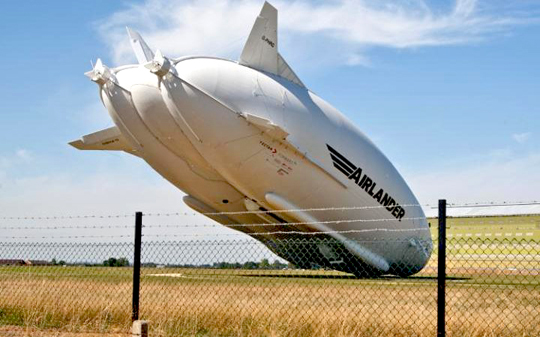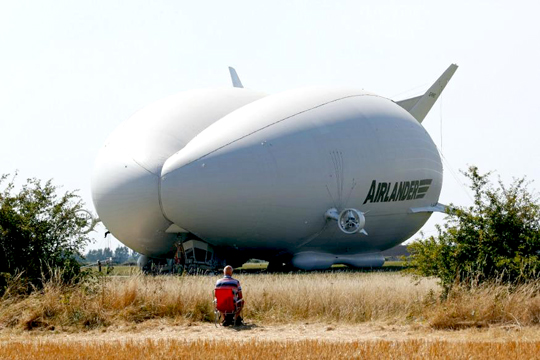London, Aug 25: The world's largest aircraft suffered cockpit damage on Wednesday after nosediving while landing on its second test flight, but there were no injuries, according to the craft's manufacturer.

The 92-metre-long Airlander 10, part helicopter and part airship, came down at Cardington Airfield in Bedfordshire, south east England.
“Airlander sustained damage on landing during today's flight,” said Hybrid Air Vehicles (HAV). “All crew are safe and well and there are no injuries.”
Amateur footage of the landing showed the craft suddenly pitching forward and landing on its cockpit, which was visibly damaged.
An eyewitness quoted by the BBC said that a line hanging down from the plane “hit the telegraph pole about two fields away,” but Hybrid Air Vehicles later said that “no damage was sustained mid-air or as a result of a telegraph pole as reported.”

The aircraft was initially developed by the US government as a surveillance vehicle, but production was shelved as part of government cutbacks.
HAV launched a campaign to get the aircraft in the skies, and the Airlander 10 made its first test flight from the airfield on August 17 following a £25 million ($33 million, 29.4 million euros) overhaul.
HAV hopes to have the craft in production by 2021, saying that it could be used for surveillance, communications and potentially passenger travel.






Comments
Add new comment